This blog post was originally published on 30 June, 2022.
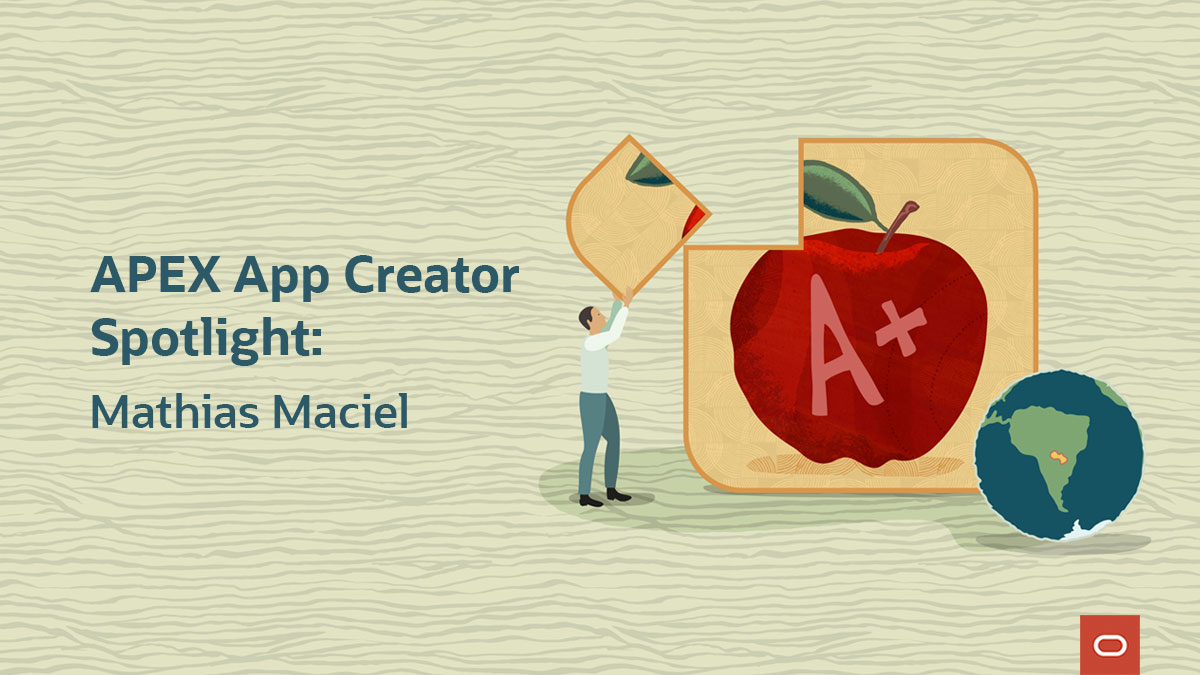
Club Escuela Solidaria is a first-of-its-kind social school in Asunción, Paraguay that gives local children and adolescents access to quality education they cannot obtain anywhere else. The school instructs approximately 120 kindergarten through 11th grade students in math, science, languages, technology, and health, both physical and emotional.
To keep all the students on track academically, the school needs to document their progress and performance in workshops for each of these subjects. The school’s unique approach to learning in the specific topics they teach and the grading methods they use needed an equally distinct solution that would be innovative enough to align with their modern educational mission and flexible enough to accommodate their specific teaching practices.
When Mathias Maciel started volunteering at the school in 2018, he saw the teachers and administrators recording all of this vital data on paper. After seeing them struggle to organize and capture the information, Maciel used his background as a software developer to create the CES app (named after the school) for other volunteers, teachers, and administrators to use instead.
“Even the basic information was impossible to track,” Maciel says of the school’s previous method. “Since everything was on paper, it would get lost or even burned. I saw that this application would make a positive impact because they would have one safe place online for everything.”
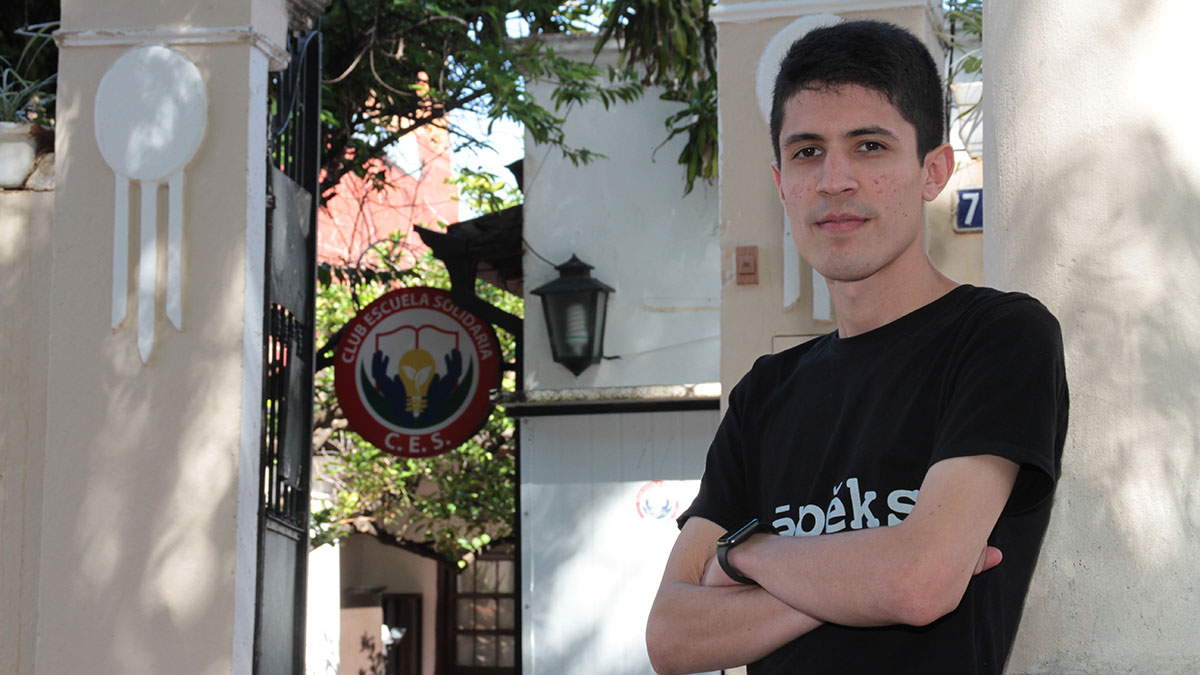
Mathias Maciel, one of Club Escuela Solidaria’s technology coordinators, used APEX to develop the CES app, which helps the school’s educators collect and store data on the academic performance of their students.
Accessing education in Paraguay
In Asunción, the largest city in Paraguay and its capital, Club Escuela Solidaria operates as the country’s first open school with a 360-degree teaching methodology that allows for personalized learning and applying the fundamentals of schooling to real-world environments.
The resources provided by the school, which is also a nonprofit organization, have proven to be crucial for youth in an area where safety and education are difficult to come by.
“The students live in precarious zones where a quality of education isn’t a priority,” says Maciel. “We’d describe the most difficulties for them as poor education and infrastructure, not only in Asunción, but on a national level. And the fact is that they are living in poverty without access to services and social protection.”
According to UNICEF’s most recent report on Paraguay, the net enrollment rate in primary school was 75%, while it amounted to 64% in upper secondary school. In addition to that, only 41% of those enrolled in primary school also completed secondary school.
| “The application has a big impact because it collects data faster than the previous manual process. It’s difficult to collect useful information and to get a real projection of child performance in workshops when you are recording only with paper.” |
| —Mathias Maciel, Oracle APEX Developer |
According to the report, the nation’s school dropout rate was also a contributing factor to child labor, since approximately 460,000 children ages 5 to 17 worked due to adults’ unemployment, extreme poverty, and cultural factors.
“As a pioneer social school, [Club Escuela Solidaria] focuses on helping children by giving them access to education, as they cannot obtain it from anywhere else due to poverty,” says Maciel.
To achieve this, he adds, the school utilizes all resources available to them, including donations and unused books and pencils—even plastic bottles are saved for lesson plans under their own pedagogy.
APEX to the rescue
After starting as a volunteer for Club Escuela Solidaria in 2018, Maciel later became one of the school’s technology coordinators, leading tech classes for students.
He developed the CES app alongside Riccardo Clemotte, who is also a technology coordinator at the school. With both of their educational backgrounds in software development and programming, the pair knew they could quickly create a solution to improve Club Escuela Solidaria’s data-tracking process.
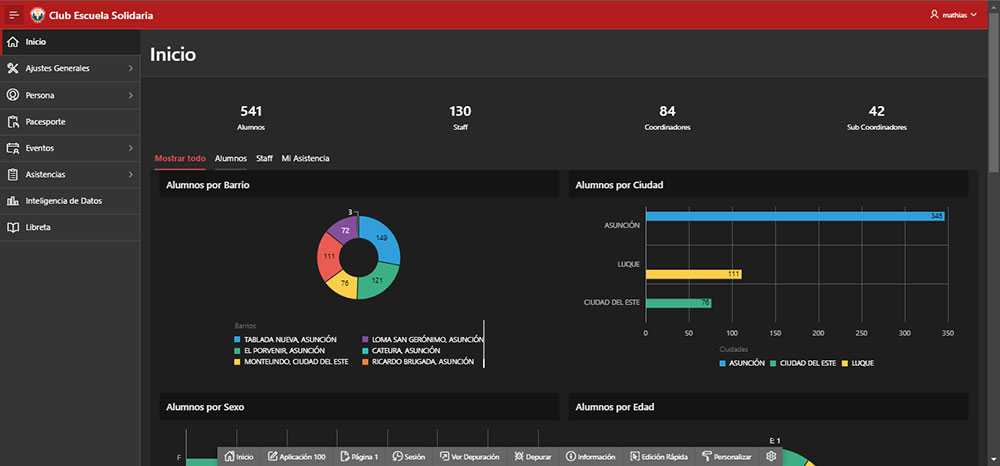
The CES app allows educators to document important information on Club Escuela Solidaria’s students, such as their names, ages, and their progress in all their school workshops over time.
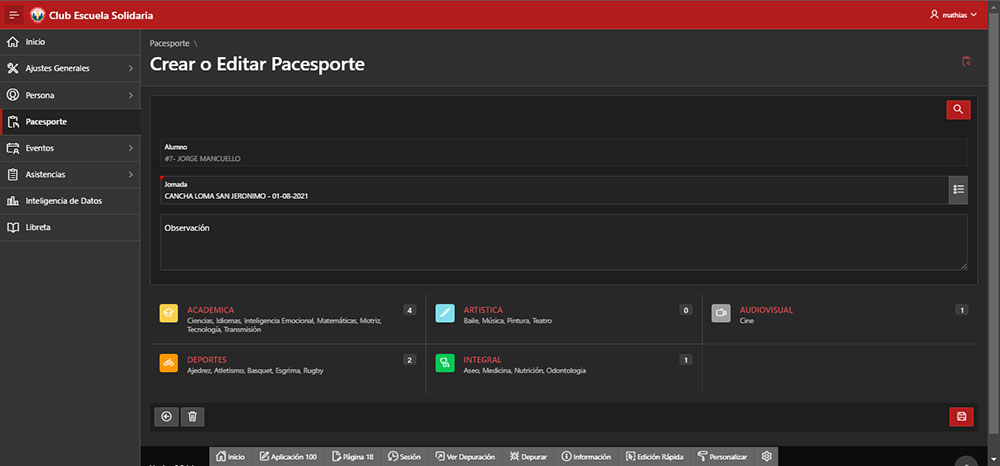
Club Escuela Solidaria uses the CES app to track the performance of approximately 120 kindergarten through 11th grade students in math, science, languages, technology and other subjects.
“[Clemotte’s] background experience with PL/SQL helped me to perform technical discussions, problem-solving, and brainstorming, all of which helped us a lot during the logical creation of this project,” says Maciel. “We enjoyed the fact that we had to create this app from zero, without too much time, during the pandemic and restrictions. That was when APEX come to the rescue. Against all odds, we did it.”
A safe and central location for data
Built on Oracle APEX, the CES app is a database that educators can use to gather and document information on Club Escuela Solidaria’s students, including their names, ages, and their performance in all their school workshops. Maciel created the app to establish one safe and reliable place for teachers and administrators to access data on their students.
They can also use the CES app to monitor students’ progress over time. The application allows instructors to collect the results from their workshops and format them on a timeline, allowing the school to critically understand the impact and effectiveness of certain teaching methodologies.
“The application has a big impact because it collects data faster than the previous manual process,” says Maciel. “It’s difficult to collect useful information and to get a real projection of child performance in workshops when the data is only available in paper.”
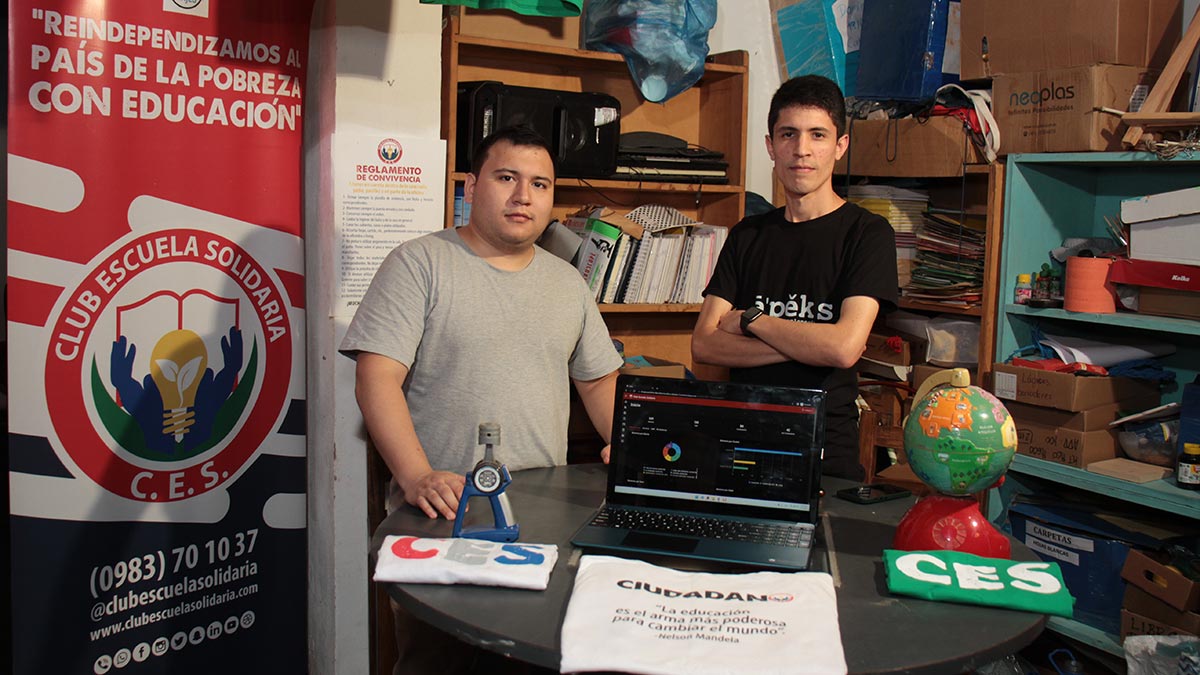
(From left) Riccardo Clemotte, also a technology coordinator at Club Escuela Solidaria, and Maciel developed the CES app as a team, utilizing their educational backgrounds in software development and programming.
The application can also record these results using the school’s unique grading system that relies on different symbols to measure progress instead of numbers or letter grades. The grading system is part of Club Escuela Solidaria’s 360-degree teaching methodology, emphasizing personalized learning over testing. The symbols reflect how complete each student’s understanding is in a subject as they are learning rather than testing them with a standardized set of letters or numbers. The flexibility of APEX allowed for the symbols to be recorded and saved when documenting the students’ performance.
In addition to tracking student data, the CES app helps the school track attendance for all their volunteers and save academic background data for future analysis.
What’s next?
For the future, Maciel sees the app and the student performance data it can track being used to prove that the school’s modern education methods are more effective than the traditional methods in Paraguay’s education systems. The school is currently using the app to collect more research on this, which has opened Maciel’s eyes to how his interests in engineering can impact his community.
“People may ask why I’m in education if it’s not much related to what I learned professionally,” says Maciel. “But the common area I see in education and engineering is they’re both places where I can help others. I built this app because I love APEX and I wanted to create something that would help my team at Club Escuela Solidaria.”
Dig deeper
Other articles in this series
- APEX App Creator Spotlight: Pablo Duque’s NeuroBase helps neurorehabilitation experts improve the patient experience
- APEX App Creator Spotlight: Christina Moore’s Tempest-GEMS tracks dollars, data, and docs during disaster
- APEX App Creator Spotlight: Shelley McNeill’s HOMR acts as a workforce multiplier for datasets used to understand the trajectory of climate change
- APEX App Creator Spotlight: Low-code is enterprise-ready—just ask Jessica Giddens
- APEX App Creator Spotlight: Dan Larsson’s Kemdb tracks toxic workplace chemicals
- APEX App Creator Spotlight: low-code automation saves scores of administrative hours for professional training business
- APEX App Creator Spotlight: Michelle Skamene’s Reading Rewards promotes literacy to children around the world
Illustration: Wes Rowell
Photography: Christian Alvarenga/Getty Images for Oracle